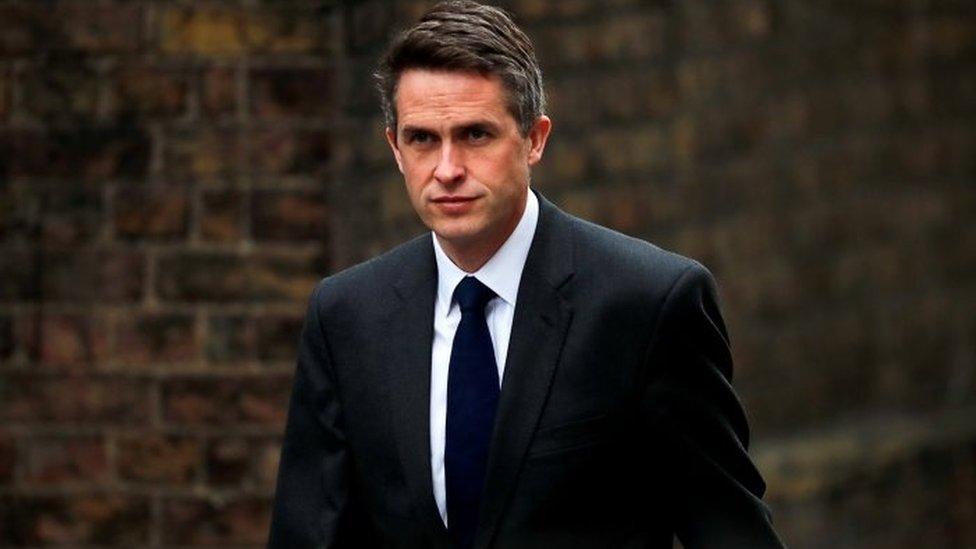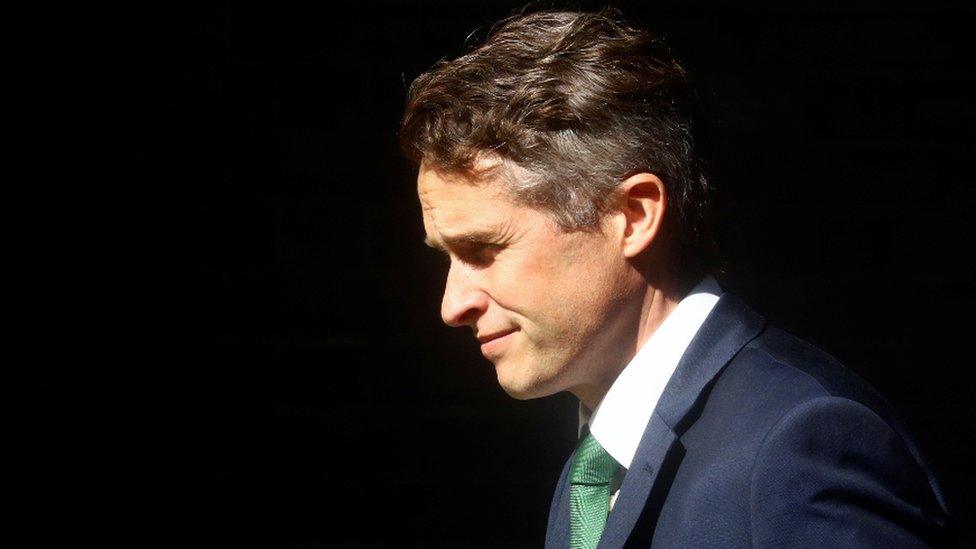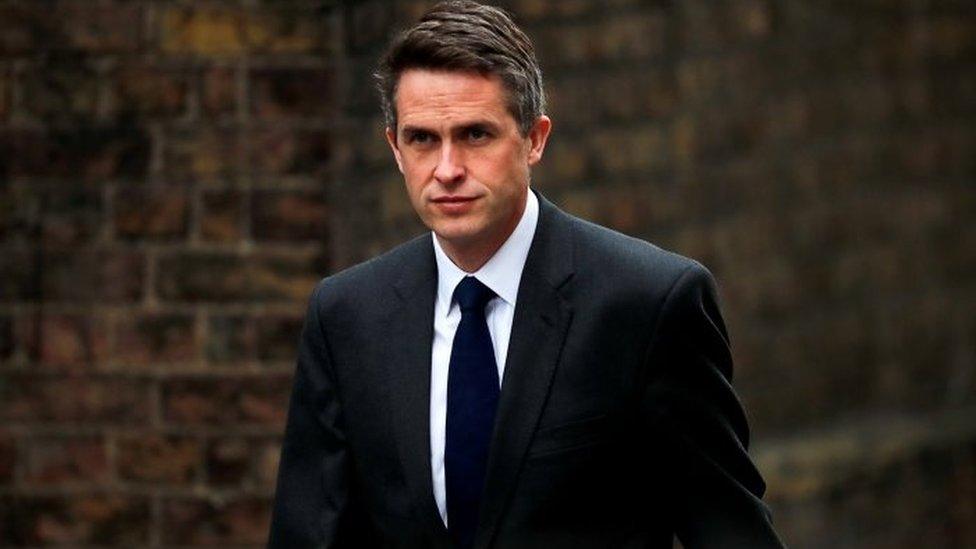School funding top priority for Gavin Williamson
- Published
- comments

Gavin Williamson will have to deliver an increase in spending on England's schools after replacing Damian Hinds as the new education secretary.
Mr Williamson was sacked from his previous post as defence secretary at the start of May after an inquiry into a National Security Council leak.
Boris Johnson pledged to increase school budgets on his first day in office as the new prime minister.
Head teachers said tackling the "funding crisis" should be a priority.
'Ducking the issue'
Mr Hinds was commended by the ASCL head teachers' union for his efforts to tackle recruitment and retention problems for teaching.
But the incoming education secretary, who was taught at a comprehensive in Yorkshire and then studied at the University of Bradford, faces the unresolved challenge of school funding shortages.
"The government has ducked this issue for far too long and its negligence in this regard has brought the education system to its knees," says ASCL union leader Geoff Barton.
Jules White, the head teacher who has organised the WorthLess? school funding campaign, said the new education secretary should "ditch the 'more money than ever' nonsense" and deliver the extra money needed by schools.
But there are likely to be differences over how much funding is needed.
Mr Johnson said he would "level up per pupil funding" - and during his leadership campaign had talked of raising the funding threshold to at least £5,000 per pupil.
This would have added about an extra £50m to the schools' budget, but Mr Johnson had also suggested that previous spending reductions would be reversed, adding an extra £4.6bn.
But the National Education Union and other teachers' unions said that the funding gap was widening to £12.6bn.
The cross-party education select committee last week called for a "multi-billion cash injection".
Tuition fees
Mr Williamson will also have to decide how to respond to the Augar review on university and college finances, commissioned by the previous prime minister.
This recommended a reduction in tuition fees in England to £7,500, along with calls for a significant increase in support for further education and vocational skills.
The new education secretary will have to decide whether to implement lower fees - with universities saying that they would need to receive direct funding to replace their lost fee income.
In his speech on becoming prime minister, Mr Johnson said his government would ensure that all children would get a "superb education, wherever they are in the country".
He highlighted the importance of universities and scientific research.
Mr Johnson also called for a commitment to international education and the "right of every girl in the world to 12 years of quality education".
Kevin Courtney, joint leader of the NEU teachers' union, said that on school funding in England, the government "still did not fully understand the scale of the crisis".
"We need real money for real pupils in real schools," he said.
Labour's Ian Lavery said the cabinet appointments were "hardline conservatives who would only represent the privileged few".
- Published8 November 2022

- Published1 May 2019

- Published19 July 2019

- Published30 May 2019
